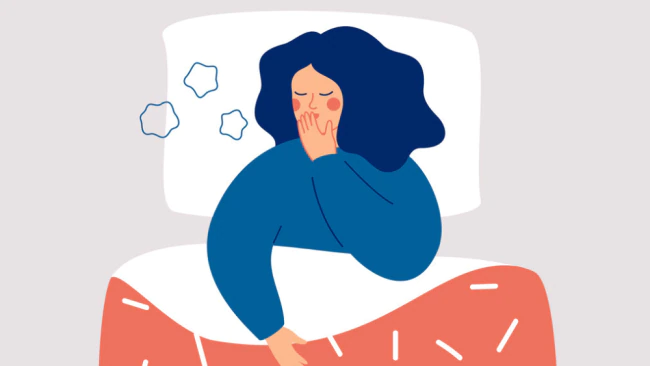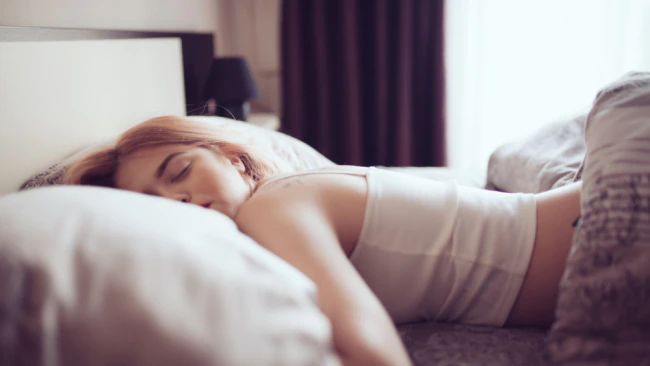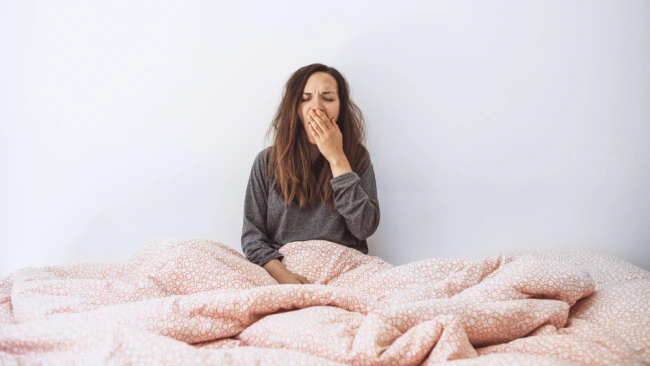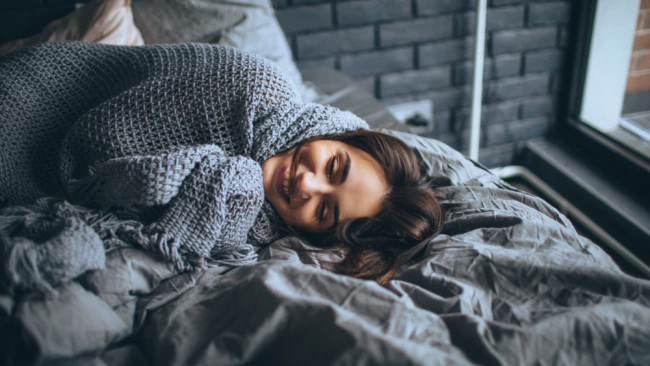If you’re anything like me, winter means heaters, thirteen cups of hot tea and a warm but somewhat unfashionable beanie sprouting from your head. We’re also tempted to sleep with the heating on super high and an electric blanket on, and can find it hard to get out of bed on those chilly mornings.
Subsequently, you may find yourself sleeping worse, feeling more fatigued and lacking energy through the day. If you want to avoid that, here’s my top three *expert certified* tips to sleep well in winter.
1. DO NOT: Sleep with your electric blanket on, or your heater on super high

It is cold but that doesn’t mean you need to heat yourself all night. If you do, it’s likely you’ll overheat, suppress melatonin synthesis in the process and wake feeling fatigued, like you’ve barely slept at all.
As mentioned in my first Sleep Well Wednesdays piece, a cool core body temperature is critical for melatonin production (the hormone to make you sleepy).
Get around this by having a wool underlay, and bedding in natural fibres. Think feathers, wool and duck down.
These fabrics promote thermoregulation, meaning they respond to your body heat and if needed, provide you additional warmth. At the same time, should you be heating up, they absorb moisture so you keep cool.
2. DO NOT: lay in bed longer than usual just because it’s cold outside

I know it’s really tempting, but this displaces the association that bed equals ‘sleep and sleep only’, which is critical for you to fall asleep easily at night.
Second to that, lying in bed for hours extends your melatonin production through the morning – so you are more fatigued, simply because you’re still in bed, in a dark space.
On the other hand, if you were to get up like you usually would, you naturally expose yourself to light; be it through outside sources or a kitchen light when you’re making your coffee, for example.
Light is what suppresses melatonin and allows you to feel more energetic.
In the absence of it being bright outside when you wake, I encourage waking to a warm light, reminiscent of morning light.
If you are buying / have a smart light, this will be 4000K (a warm glow). After that, should you not want to go outside, options include:
- Meditating / journalling for 20 minutes
- Heading to a yoga class (in person or online)
- Heading to the gym (sweat will also heat you)
- Catching up with a friend for a tea (please, no coffee at 6am if possible)
See! With so many great options, why would you want to lie in bed anyway?
3. DO: Rest more than usual

Sleep aside, if you’re feeling fatigued, know it’s very normal – the sunlight helps us produce serotonin, an awakening hormone.
Second to that, as mentioned above, it suppresses sleepiness hormone melatonin.
Thus, less sunlight means greater fatigue, naturally.
Rather than fight against it, allow this to be – practice self-care. Logistically, that may look like allowing yourself to rest a little more through the day, shifting your ‘normal’ alarm half hour later (still get up when it goes off though, FYI), and saying no to heading out for drinks on a Friday if you are really craving a night in.
Especially for those who have been burning the candle at both ends over the warmer months, this is a wonderful opportunity for you to take the rest, recharge and reset you know you want and need – but without the guilt.
And if anyone makes you feel guilty about resting a little more, remember – your sleep coach told you it was ok.
Know that by doing so yourself, you inspire others to do the same – and together, you’ll progress into 2021 feeling more rejuvenated and recharged than ever before.

+ show Comments
- Hide Comments
add a comment